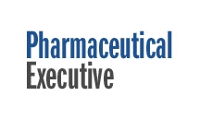Posted by Michael Wonder on 09 Sep 2017
Can a new value framework help ease friction over orphan drug prices?

7 September 2017 - America’s healthcare debate has stalled in Congress, but constructive dialogue and innovation are thriving in specialised health forums.
Even on the contentious topic of orphan drug pricing, the last few months have brought hopeful signs that patients, pharmaceutical companies, health insurers, and the academic bodies that counsel them are trying to speak the same language.
In May, the ICER released a white paper acknowledging that value assessments of orphan and ultra-orphan medicines are more challenging than for other types of treatments. This is partly due to distinctive clinical, regulatory, and payer contexts in which these treatments are developed or used, ICER conceded.
The white paper signalled that ICER was open to guidance from outside groups that have criticised its methodology in the past. In particular, it showed a willingness to reflect the viewpoint of patients and manufacturers in its analysis of price, cost effectiveness, and affordability. This is important because the media, some payers, and even policymakers are looking to the organisation, and others like it, to help determine good value for money in health care.

